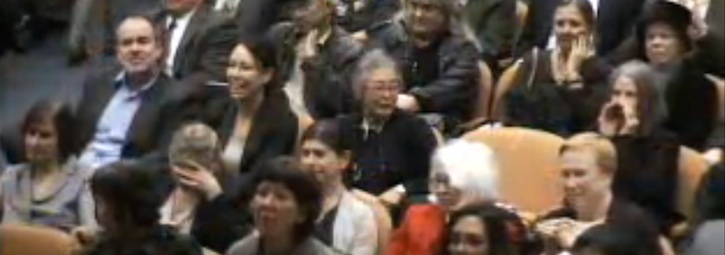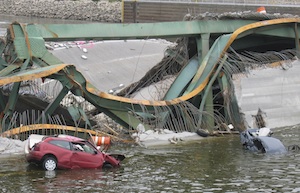Friends and foes give CPUC president a raucous send off

Mike, half the people are here are here to congratulate you on your retirement…the others are here to make sure you’re retiring. It’s pretty indicative of the dynamics of this agency.
Danny Curtin, California Conference of Carpenters
Those few words summed up a sometimes laudatory, sometimes vitrolic 3 hours as friends, past and present colleagues, anti-wireless activists and others praised and attacked retiring California Public Utilities Commission president Michael Peevey at his final meeting yesterday in San Francisco.… More

![By Unknown or not provided (U.S. National Archives and Records Administration) [Public domain], via Wikimedia Commons](https://www.tellusventure.com/blog/images/2014/12/public_housing_old_style.jpg)

![By Unknown photographer; ; Imaging by Gwillhickers [Public domain], via Wikimedia Commons](https://www.tellusventure.com/blog/images/2014/12/post_wagon.jpg)

![By Doc Searls (Flickr: 2012_11_23_sjc-iah-bos179) [CC-BY-2.0 (https://creativecommons.org/licenses/by/2.0)], via Wikimedia Commons](https://www.tellusventure.com/blog/images/2014/12/helendale.jpg)
![See page for author [Public domain], via Wikimedia Commons](https://www.tellusventure.com/blog/images/2014/12/end_run.jpg)

![By Sanfranman59 (Own work) [GFDL (https://www.gnu.org/copyleft/fdl.html) or CC-BY-SA-3.0-2.5-2.0-1.0 (https://creativecommons.org/licenses/by-sa/3.0)], via Wikimedia Commons](https://www.tellusventure.com/blog/images/2014/12/california_hotel.jpg)
